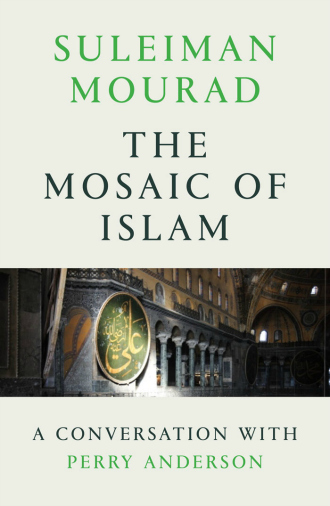
|
| |
|
Detail
 |
The Mosaic of Islam: An Interview on the Quran with Perry Anderson
|
| Category: |
Books > Church > Interfaith Dialogue
|
| Author/Artist: |
SULEIMAN MOURAD |
| ISBN / ID: |
9781786632128 |
| Publisher: |
Verso |
| Binding: |
PAPERBACK |
| Price: |
AU$19.99 |
|

 |
| Description: |
This book is an accessible and stimulating introduction to the complexities of Islam, past and present. It provides a series of critical reflections on the faith and politics of Islam. These take the form of interviews with Suleiman Mourad, Professor of Religion at Smith College, Massachusetts, conducted by historian Perry Anderson. The first section explores the composition of the Quran and how this difficult, multi-layered and contradictory text reflects the challenges faced by Mohammed in building up a community of believers.
Mourad shows how different styles of verse speak to particular circumstances and needs at various times. When Mohammed is in Mecca and lacking a leadership position, a more inclusive attitude to Christians and Jews under the shared “spiritual grandfather” of Abraham can win more followers. This inclusive tone disappears in the later period in Medina when Mohammed arrives as an established religious leader and statesman preparing to take on the Jews politically and militarily.
A later section includes discussion of the so called Arab conquests led by some of Mohammed’s followers soon after his death. It challenges the myth of a project of enforcing mass religious conversion among conquered populations. Mourad also details how the concept of jihad gets defined differently at different times, either as a more radical notion of an individual duty for all, as during the Crusades period (1095 to 1291), or as a collective duty under sole control of the Caliph. The latter framing meant that from 750 CE the newly dominant Abbasid rulers could ensure that an emergent thriving commerce between the Muslim world and the Byzantine Empire and India would not be disrupted.
There is a tension between learned consideration of Islamic movements, such as the Wahhabi form of Salafism, and attempts to draw on this for analysis of current conflicts in the Middle East. This emerges most clearly in the final and longest section on “Salafism and Militant Islam”. Sustained political analysis of today’s world is often interrupted by sudden shifts back to a more obscure history of particular religious tendencies.
Underlying this is Mourad’s overemphasis on the importance of religious ideas in wider political struggles. Thus he argues that “the only way Islamic terrorism can be defeated is by understanding its theology and producing a counter to it”. His book is an attempt to do this. For this reason he is quite dismissive of the Arab Spring and does not really reference the catastrophic role of wider inter-imperialist competition.
Recommended uses of this book
For those engaging in inter-faith dialogue
For students of world religions other than Christianity
|
|

 |
|
|
|
| |
Please
note: All
prices listed on this site are in Australian Dollars (AU$)
and are GST inclusive.
Prices
may change without notice. Postage & packing extra.
|
|



